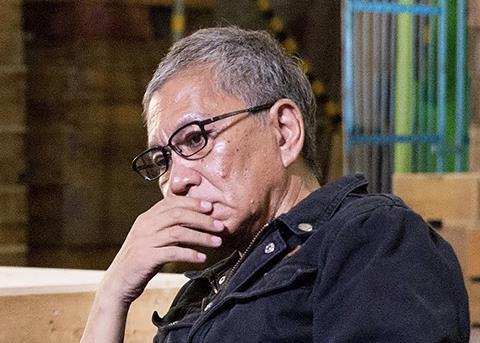
Japanese director Takashi Miike is a familiar name to fans of “fantastic” cinema.
For the last 30 years, he has delivered films in a dizzying array of genres, from the horror of Ichi The Killer and One Missed Call to off-kilter musicals The Happiness Of The Katakuris and For Love’s Sake to gangster action thrillers Dead Or Alive and Yakuza Apocalypse.
He is also no stranger to the Bucheon International Fantastic Film Festival (Bifan, July 7-17), having appeared at the event in South Korea several times over the years.
“It always strikes me as a festival run and visited by people who really love cinema,” says Miike. “Especially films that are a little strange.”
In a testament to the director’s indefatigable pace (he has directed more than 100 features since 1991), the festival is screening two Miike features that were released in Japan last year.
The first is The Great Yokai War: Guardians, a follow-up to his 2005 feature The Great Yokai War. Both films take place in the realm of creatures from Japanese folklore known as the yokai.
“Yokai are a unique Japanese myth,” says the filmmaker. “They’re not quite monsters, not quite ghosts. They’ve suddenly appeared out of nature but are also shaped by human perception. No matter what era we’re in, yokai are always here with us. I feel less like I decided to make another yokai film, and more as if yokai willed us humans to make it.”
Miike explains that he was also moved by the film’s environmental themes. “In a place like Tokyo, the yokai no longer have a place to live,” he says. “When the yokai disappear, it means humans have lost touch with nature, and that means we’re done for.”
The film centres on two young brothers, played by Kokoro Terada and Rei Inomata, now aged 14 and 9 respectively. On working with child actors, Miike explains, “I’m not the type of director to talk down to kids from my perspective as an adult, I’m the type that tends to revert to a childlike sense of wonder. In that sense, child actors are my greatest allies on set.”
The filmmaker adds that retaining that childlike spirit is important to him, no matter what film he is making.
“Marketing teams these days like you to be clear about what audience you’re targeting: this movie is for kids, this one is for adults, and so on. I understand that from a business perspective, but I try not to let it govern what I do,” he says.
“After all, from the viewpoint of yokai, who live for hundreds of years, there’s no big difference between human children and adults.”
The second Miike film playing at Bifan is The Mole Song: Final, the third and supposedly last in a trilogy of crime comedy films about a mole who infiltrates the yakuza and whose over-the-top antics bring to mind the Naked Gun series.
With Final being the capstone to the Mole Song trilogy, did the director feel pressure to make those antics even bigger than the previous two films?
“I do sometimes think to myself, ‘I’ve got to make sure this feels fresh,’” he says. “But I didn’t want to add anything that felt like it didn’t belong in the film. Audiences can tell when you do that.”
“At the same time, the cast and crew have all grown over the years, so even if I haven’t, you should be able to feel a change,” he adds with a laugh.
Any connection between an all-ages adventure film about yokai and an adult-oriented comedy about police and gangsters might not be immediately evident, but Miike points out that both have to do with the concept of justice.
“Why are humans so obsessed with the idea of justice?” he asks. “The fact this question appears in so many films probably means that it’s something we’ll never truly achieve. We understand that, but at the same time, we keep reaching for a more just world. It’s about the process, not the result.”
From a director who is nearly always in the process of making one film or another, that is a sentiment that makes a lot of sense.






![The Brightest SunScreen[Courtesy HKIFF]](https://d1nslcd7m2225b.cloudfront.net/Pictures/274x183/3/5/0/1448350_thebrightestsunscreencourtesyhkiff_312678.jpg)


















No comments yet